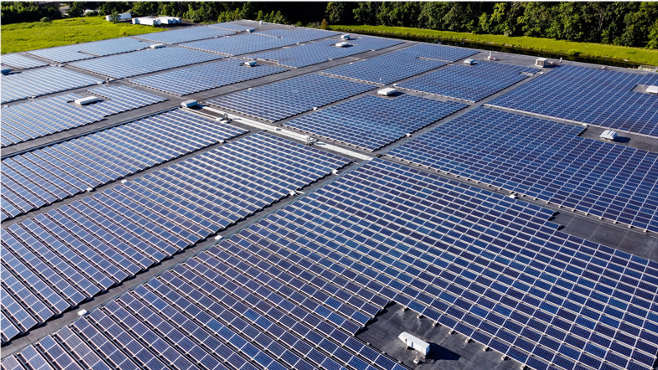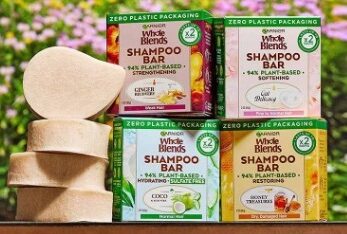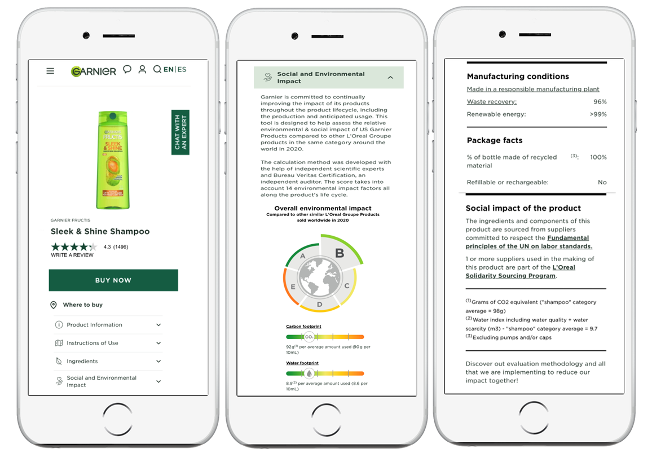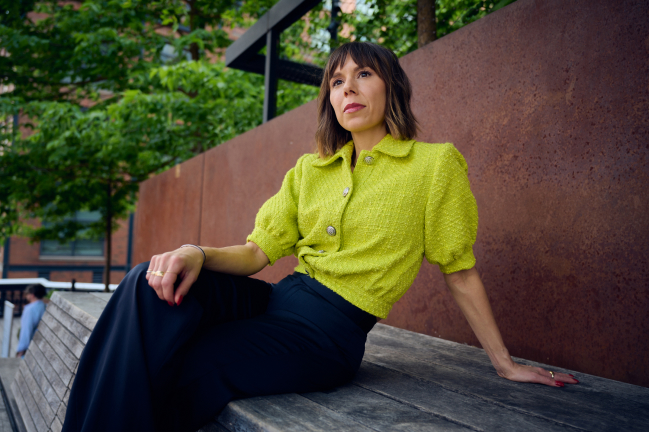Morgan Hagney, MPS ’17, helps L’Oréal deliver on its sustainability promises
In response to climate change—and consumer demand for sustainability—the beauty industry is giving itself a complete makeover: reviewing and reimagining packaging, formulas and ingredients, and production methods.

“YOU HAVE TO HAVE COURAGE AND CONVICTION TO CHALLENGE A DOMINANT WAY OF THINKING.”
—Morgan Hagney
In 2020, L’Oréal, the largest beauty company in the world, announced a set of global sustainability targets for 2030 called L’Oréal for the Future. Commitments include reducing greenhouse gas emissions by 50% per finished product compared with 2016; recycling 100% of the water used in its industrial processes; ensuring that all bio-based ingredients used in formulas and packaging are traceable, sustainably sourced, and not linked with deforestation; and sourcing all plastic used in packaging from recycled or bio-based sources.
Morgan Hagney, Cosmetics and Fragrance Marketing and Management MPS ’17 (CFMM), is leading this initiative for the U.S. Consumer Product Division, the company’s largest entity. Hagney also teaches communication and presentation skills for FIT’s CFMM program and serves as its alumni chair.
“Morgan has always had incredible vision: beyond the moment, beyond the trends, beyond any individual brand,” says Stephan Kanlian, professor and associate chair of CFMM. “She also believes passionately in corporate social and environmental responsibility and its power to effect positive change.”

Hagney, the first person in the new role at L’Oréal, works to engage and empower the division’s 1,000-plus employees across iconic brands like Maybelline, L’Oréal Paris, and Garnier to drive results on its environmental and social commitments.
“You have to have courage and conviction to challenge a dominant way of thinking,” she says. “We don’t always have perfect solutions; it’s about having the resilience to adapt, learn, and try again.”
Hagney adds that “taking action is not only in the best interest of our communities and our industry, it’s also smart business.”
Indeed, according to a fall 2022 study by global consultancy Simon-Kucher, 71% of consumers worldwide have changed their buying habits to be more sustainable, and 66% rank sustainability as one of the five key reasons behind a purchase, an increase from 50% in 2021.
L’Oréal, which has long worked toward sustainability, is “making it a central part of our business model,” Hagney says.

L’Oréal for the Future is part of a broader strategy for making the world better. The company’s 36 international brands have committed to benefit 3 million people by 2030 through dedicated social programs that address causes like Black maternal health, depression and anxiety, and women’s rights.
Hagney says L’Oréal is well on its way to meeting its ambitious goals, noting that 97% of new or renovated products have already improved their social and environmental footprint; U.S. manufacturing and distribution sites are using 100% renewable energy; 61% of formula ingredients are derived from renewable, abundant, or natural sources versus petroleum-based ingredients; and 2.5 million people have directly benefited from the brands’ social programs worldwide.
A core component of the 2030 sustainability initiative, L’Oréal’s Product Environmental and Social Impact Labeling system provides greater transparency and helps consumers make more informed choices about the products they buy.

The labeling system, developed with scientific experts and verified by independent third parties, grades L’Oréal’s products on a variety of environmental and social factors: greenhouse gas emissions, water use, manufacturing conditions, and packaging materials, which are measured across every stage of a product’s life cycle. The grades are posted on product pages of the company’s websites.
The initiative, which launched in France in 2020, has since been rolled out in 27 countries, including the United States, where it started with Garnier hair care in fall 2022 and Kiehl’s in spring 2023.
L’Oréal plans to implement the system across more of its brands in the coming year and to share its findings with the 60-member EcoBeautyScore Consortium, an international alliance of cosmetics and personal care companies working toward a unified rating system.
“It’s important to realize that there’s no competition in this space,” Hagney says. “Change happens when we stand together and take action. We’re all trying to get to the same goal.”